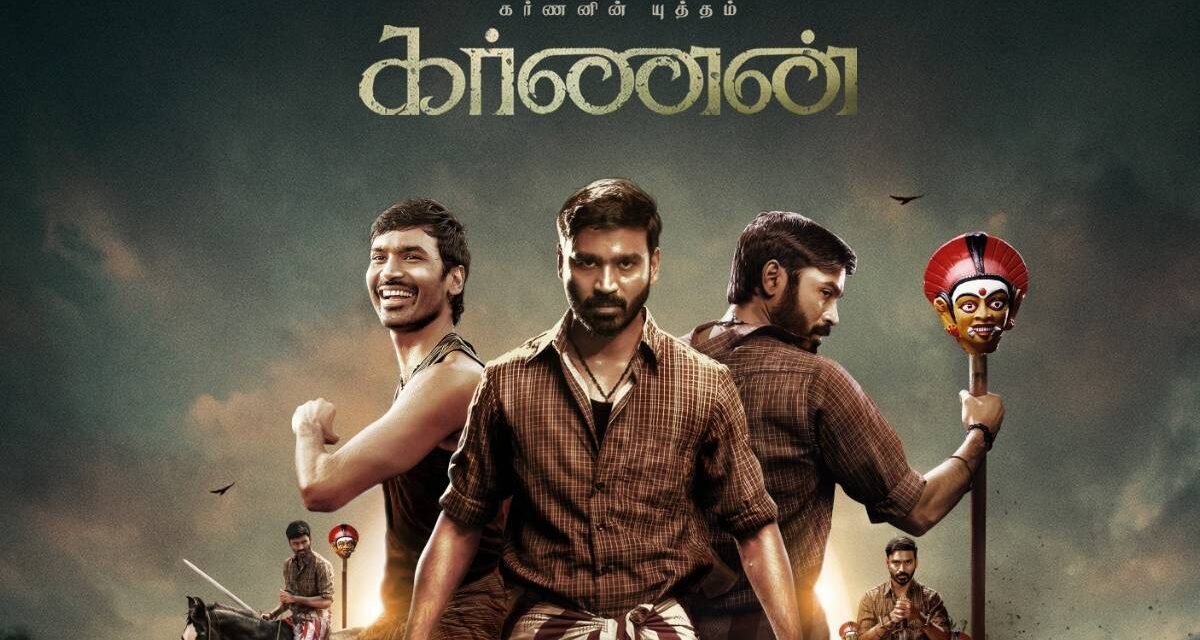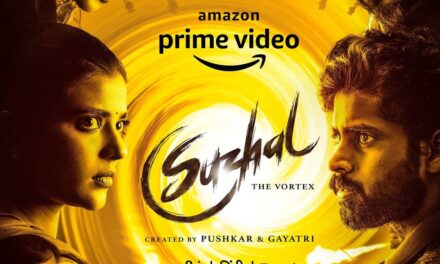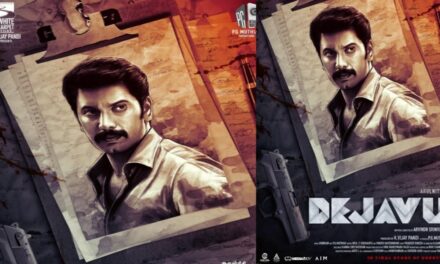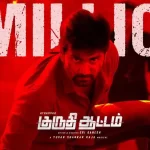Director: Mari Selvaraj
Cast: Dhanush, Lal, Rajisha Vijayan, Yogi Babu, Natarajan Subramaniam
This is a story of a resistance. An age-old story of rage and defiance with Mari Selvaraj’s unique brand of cinema. Karnan breathes and lives on its imagery. The powerful imagery that Mari Selvaraj deigns to show us openly and subtly, drives this critically acclaimed film that is finally available on Amazon Prime.
Karnan (played by a magnificent Dhanush) is a hot-headed young man. He bristles at the injustice doled out at his village and his caste and his answer is… to fight it and stand proud while doing so. Even as he aspires to get into the military, Karnan’s life is filled with discrimination. The centre of the plot is the lack of a bus stop at Puliyangulam, a lower-caste village in Tamil Nadu. The village which has no facility to speak of, has its own brand – their rituals, their belief, and their fight to stand up proud. But they are forced to face the harsh truth of having to access all facilities via an upper-caste village.
Loosely based on the horrendous 1995 Kodiyakulam violence in Tamil Nadu, all hell breaks loose, when Karnan and the villagers damage and break a private bus for not stopping for a pregnant woman from Puliyangulam. In the aftermath, a biased and casteist police force unleash their wrath on the villagers. And Mari Selvaraj does not hold back when he shows us how the police unleash their wrath. Old men writhing in pain as they are being belted mercilessly, precious education documents of an ambitious young woman being damaged, a village ransacked in the name of their caste… Karnan’s scenes of oppression etch a scar.
Imagery is everything in Karnan. The young girl who is left to die on a highway, who later takes on a much ‘godly’ form. The legs-tied donkey hobbling about and then let free by none other than Karnan. Villagers named as Duriyodhanan, Draupadi, Yemen. These are not just tools or tropes for Mari Selvaraj. Each of these instances and people tell us a story. Not just of Karnan. But of caste oppression, bias, resistance, and the age-old fight against casteism.
Dhanush shines and holds his head proudly in and as Karnan. There are not many roles that this actor can NOT do justice in, but with Karnan, he goes a step above. Just watch him in a scene where he loses his anger at an unfair Kabaddi game. Or in the scene where he breaks down a bus. He doesn’t speak. But his actions do, and with Dhanush, even his actions have emotions. Lal as Yemen, the grandfather who shields Karnan, is a perfect compliment to Dhanush’s acting prowess. I was particularly intrigued with all the supporting characters in this film. An old lady who shares a moment of screen space and affection with Yemen. Draupadi (Rajisha Vijayan) reminded me slightly of Parvati in Mariyaan. Their lovely romance has its moments. Lakshmi Priya as Padmini, Karnan’s sister, is an asset to this film. Yogi Babu, in a sober role, excels as well.
I must give a special mention to the policeman Kannabiran played by Natarajan Subramaniam. This is an actor who makes us cringe without showing any reaction apart from disgust at his victims. Watch him when he issues an ultimatum to Karnan. Or watch him walk around angrily at not being offered a chair, but, also, watch him when he beats innocent men within an inch of their lives, without an iota of sympathy let along empathy. A hat tip to Mari Selvaraj for bringing to our screens a cast that is as original and potent as his script.
Music is an important tool for Mari Selvaraj. Through the raw music of the villagers, sang by equally raw voices, Santhosh Narayanan transports us to a world where we do not have a choice but to look at the atrocities being doled out in the name of caste. ‘Kanda Vara Sollunga’ that kick-starts the movie is a treat for the eyes and the ears. So is ‘Manjanathi puranam’, a lover’s wail of pain voiced by Deva. With images of pain that will stay with us for a while, the songs in Karnan portray scenes of love, oppression and resistance. And sometimes, even hope.
But more than anything, it is the strongly written screenplay that is filled with nuance, sensitivity and anger that stands out. You can feel the anger that is seeping through the villagers through their words. You can feel Karnan’s anger through his words, that drive his actions. He is not just any angry young man. He is THE angry young man with a cause to fight for. There is one scene that refuses to leave my mind or rather my heart, after watching Karnan. It is that of an elderly man being thrashed to his almost-death, by a heartless policeman. And there is a dialogue that rings in my ears. How does Maadasamy’s son get named as Duriyodhanan, he asks the elderly man, even as he beats him. Karnan answers – in his own way – when he thrashes the said policeman, in the end.
But it also begs the larger question. It is 2021 and we are still resisting against caste and oppression. Where does that leave us, as a society? Karnan is a wake-up call. It is not just art. It is the perfect example of what art can do when used with a conscience.
Rating: 4.5/5









